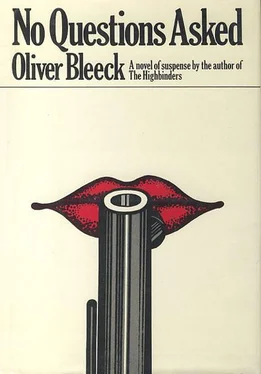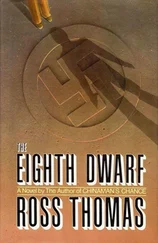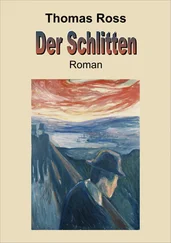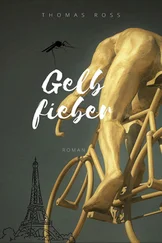Ross Thomas - No Questions Asked
Здесь есть возможность читать онлайн «Ross Thomas - No Questions Asked» весь текст электронной книги совершенно бесплатно (целиком полную версию без сокращений). В некоторых случаях можно слушать аудио, скачать через торрент в формате fb2 и присутствует краткое содержание. Город: New York, Год выпуска: 1976, ISBN: 1976, Издательство: William Morrow, Жанр: Детектив, на английском языке. Описание произведения, (предисловие) а так же отзывы посетителей доступны на портале библиотеки ЛибКат.
- Название:No Questions Asked
- Автор:
- Издательство:William Morrow
- Жанр:
- Год:1976
- Город:New York
- ISBN:978-0-688-03011-7
- Рейтинг книги:3 / 5. Голосов: 1
-
Избранное:Добавить в избранное
- Отзывы:
-
Ваша оценка:
- 60
- 1
- 2
- 3
- 4
- 5
No Questions Asked: краткое содержание, описание и аннотация
Предлагаем к чтению аннотацию, описание, краткое содержание или предисловие (зависит от того, что написал сам автор книги «No Questions Asked»). Если вы не нашли необходимую информацию о книге — напишите в комментариях, мы постараемся отыскать её.
Interestingly, the owner of the book, PI Jack Marsh, has been kidnapped as well. St. Ives soon finds himself involved in a deadly game of deception and murder.
No Questions Asked — читать онлайн бесплатно полную книгу (весь текст) целиком
Ниже представлен текст книги, разбитый по страницам. Система сохранения места последней прочитанной страницы, позволяет с удобством читать онлайн бесплатно книгу «No Questions Asked», без необходимости каждый раз заново искать на чём Вы остановились. Поставьте закладку, и сможете в любой момент перейти на страницу, на которой закончили чтение.
Интервал:
Закладка:
The Rare Book Division was on the second floor of the east wing of the building. I wandered into its reading room first through a pair of fine bronze doors that were worth a look. There were three panels on each door emblazoned with printers’ names and devices, and I recognized the device of Fust and Schoeffer, a couple of printers who supposedly used to work with Johann Gutenberg, the man who started it all. I also recognized the printer’s mark of William Morris, the man who founded the Kelmscott Press, not the talent agency, and who, probably more than anybody else, got the country interested in fine printing again back in the 1890s.
The reading room of the Rare Book Division turned out to be a peaceful place with twenty-foot ceilings and an air of determined concentration. There were a couple of rows of nicely lit tables with comfortable-looking chairs occupied by perhaps a dozen persons who wore rapt expressions and didn’t move their lips while they read.
The office that the government provided for the Chief of its Rare Book Division wasn’t overwhelming. There was a nice desk and some upholstered chairs and a few pictures, but there wasn’t anything for show, and it could have been the office of the brigadier general out at the Pentagon who buys all of the Army’s machine guns. Government offices tend to look pretty much alike.
But if you didn’t remember the office, you remembered the man who occupied it. For one thing, Hawkins Gamble Laws III was probably one of the politest men I ever met in my life. After I was ushered in by his secretary, he shook my hand as if it were indeed the great pleasure he claimed it to be, saw to it that I got the room’s most comfortable chair, dispatched his secretary for coffee, and then inquired solicitously about how he could best be of service. I got the feeling that if I had told him that I was down on my luck and needed a hundred until next Tuesday, he would have dug down into his own pocket and offered it without hesitation, except for the comment that if Tuesday didn’t prove convenient, Friday would do just as well.
“The first thing you might tell me,” I said, “is what was stolen from whom.” I used whom because I thought that if I had said who it would have made him uncomfortable, although he would have been far too polite to have shown it I noticed that he himself spoke a kind of mandarin English, touched up with plenty of commas and semicolons, which you don’t run across too often in the United States unless you subscribe to The Economist .
“I really must apologize for not telling your attorney, Mr. Greene, the name of the book in question,” Laws said. “However, when I explained my reasons he grasped the situation immediately, although it was an ungodly hour when circumstances forced me to telephone him.”
“Myron’s fairly quick in the morning,” I said.
“He seemed a most perceptive chap. Sugar?”
“Please.”
Instead of shoving the sugar bowl across the desk to me he rose, walked around, and held the bowl while I spooned what I needed into my cup. The sugar bowl looked to be silver, as did the cream pitcher and the tray they rested on. The cups were of a thin, translucent china, and I got the idea that when it came to personal possessions, Laws liked to have nice things around, although I noticed that his catalog of nice things didn’t include a silver-frame portrait of the wife and kids. I decided that he must have felt his home life was a personal matter and not something that needed advertising.
Laws was somewhere in his late fifties, a tall man, really tall, but slightly stooped, as if he were afraid that his height might make him miss something that he should be attentive and polite about. He wore a nicely cut grey flannel suit, the shade of old pewter, which went with his hair, and he was one of the few men I ever saw who didn’t seem in the least self-conscious about the Phi Beta Kappa key that he wore on the gold chain across his vest.
He had a big, squarish head, almost too big, but not quite, and he kept cocking it to one side to show that he was both interested and attentive. His eyes were the twinkling kind, as brown and as friendly as a cocker pup’s, and they didn’t seem to need glasses, which I thought unusual. He smiled often and easily, as though he found the world a rather interesting, pleasant place to live in because it was populated with wonderful people like me, and after a few minutes in his beaming presence I had to forgive him for the fact that he parted his hair in the middle and wore a bow tie.
I sipped my coffee and complimented him on it, and he seemed genuinely pleased that I liked it. After that he gave his big chin a couple of reflective strokes, cocked his head to the other side as if to make sure that I was as comfortable as possible, hurriedly found an ashtray when I produced a cigarette, and leaned forward and lit it with a package of matches, which he insisted that I keep. I kept them, after first noting that they were from the Sans Souci, which is where all the important folks in Washington like to eat lunch.
“I take it then,” he said, “that you have accepted the assignment to serve as intermediary in the return of the purloined book. Dear me, that must be the first time that I’ve used purloined in thirty years.”
“You don’t hear it much anymore,” I said.
“We were, Mr. St. Ives, most distressed to learn that the book had been stolen, although our distress was somewhat alleviated by the fact that it was not stolen from the Library itself.”
“So I understand.”
“The book in question is quite old and quite rare and hence, quite valuable.”
“How valuable?”
“That’s difficult to say. On today’s market, taking inflation into consideration, I should think that it would be snapped up at five hundred thousand dollars. It could bring as much as three-quarters of a million.”
“It’s not a Gutenberg Bible, is it?”
“Oh, dear me, no. I do believe we would have called out the National Guard if one of them had been stolen. We have three, you know.”
“I didn’t. Out of curiosity, what would one of them bring on today’s market, if there is such a thing as a market for Gutenberg Bibles?”
Laws had to think about it. He gave his big chin another couple of reflective rubs, tugged at an ear-lobe, and took a sip of his coffee. “I would hesitate to say, but I think at least several million dollars. Back in 1930 the Library acquired Dr. Vollbehr’s collection of three thousand incunabula, which at the time included one of the three known perfect copies on vellum of the Gutenberg Bible. It took a special Act of Congress, but we paid one and a half million dollars for the entire Vollbehr collection. However, Dr. Vollbehr himself had paid nearly three hundred and fifty thousand dollars for that particular Gutenberg, which made it at the time the highest price ever paid for a printed book. That, however, was nearly fifty years ago. Today?” Laws shrugged and let the question answer itself.
“The book that was stolen was what?”
“It was Pliny’s Historia Naturalis ,” Laws said. “Are you familiar with it?” He asked it politely, and when I shook my head no he smiled understanding without any trace of condescension.
“No, I don’t suppose too many people are nowadays, but it was the first scientific classic to be printed. Pliny the Elder, of course, was Gaius Plinius Secundus, the Roman naturalist, encyclopedist, and writer who lived from A.D. 23 to 79. The book was actually one of the chief repositories of scientific knowledge that scholars had available to them during the Middle Ages. This first edition that we’re speaking of was one of the earliest books to be printed in Venice by Johaness de Spira.”
“When was that?” I said.
Читать дальшеИнтервал:
Закладка:
Похожие книги на «No Questions Asked»
Представляем Вашему вниманию похожие книги на «No Questions Asked» списком для выбора. Мы отобрали схожую по названию и смыслу литературу в надежде предоставить читателям больше вариантов отыскать новые, интересные, ещё непрочитанные произведения.
Обсуждение, отзывы о книге «No Questions Asked» и просто собственные мнения читателей. Оставьте ваши комментарии, напишите, что Вы думаете о произведении, его смысле или главных героях. Укажите что конкретно понравилось, а что нет, и почему Вы так считаете.












